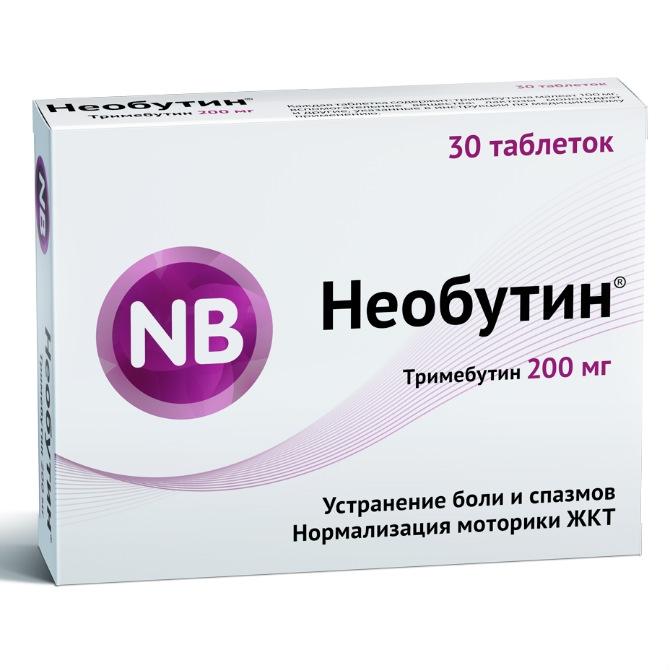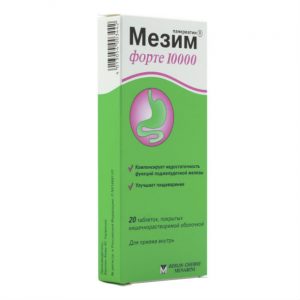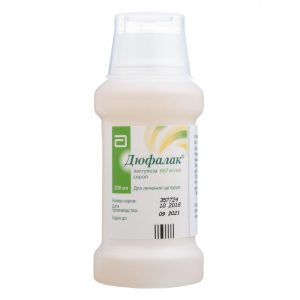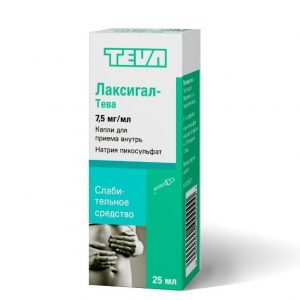Description
Pharmacological action
Pharmacotherapeutic group
Antispasmodic
ATX code: A03AA05
Pharmacological properties of
Pharmacodynamics
Trimebutin, acting on the enkephalinergic system of the intestine, is a regulator of its peristalsis. Acting on peripheral -, – and to receptors, including those located directly on smooth muscle throughout the gastrointestinal tract (GIT), it regulates motility without affecting the central nervous system. Thus, trimebutin restores the normal physiological activity of intestinal muscles in various diseases of the gastrointestinal tract associated with impaired motor skills.
Normalizing visceral sensitivity, trimebutin provides an analgesic effect in abdominal pain.
Pharmacokinetics
Absorption and distribution. After oral administration, trimebutin is rapidly absorbed from the gastrointestinal tract, maximum plasma concentration (Cmax) is reached after 1-2 hours. Bioavailability is 4-6%. Distribution volume (Vd) – 88 l. The degree of binding to plasma proteins is low – about 5%. Trimebutin to a small extent penetrates the placental barrier.
Metabolism and excretion. Trimebutin is metabolized in the liver and excreted through the kidneys mainly in the form of metabolites (approximately 70% during the first 24 hours). The elimination half-life (T1 / 2) is about 12 hours.
Indications
Irritable bowel syndrome. Postoperative paralytic intestinal obstruction.
Contraindications
Hypersensitivity to trimebutine maleate and other components, part of the drug.
Children under 3 years of age (for this dosage form). Pregnancy.
Lactose intolerance, lactase deficiency, glucose-galactose malabsorption.
Use during pregnancy and lactation
Pregnancy. In experimental studies, no data were found on teratogenicity and embryotoxicity of trimebutin. However, due to the lack of necessary clinical data, the use of Neobutin ® during pregnancy is contraindicated.
Breastfeeding period. It is not recommended to use the drug Neobutin ® during breastfeeding, due to the lack of reliable clinical data confirming the safety of the drug during this period.
If you need to use trimebutin during breastfeeding, breastfeeding should be discontinued.
Special instructions
The course of treatment of acute irritable bowel syndrome at a dose of 600 mg per day for four weeks and the continuation of treatment after a course of 300 mg per day for 12 weeks avoids relapse.
Effect on the ability to drive vehicles and mechanisms
The drug does not have a sedative effect, does not affect the speed of the psychomotor reaction and can be used in people of various professions, including those requiring increased attention and coordination of movements.
However, given the possible side effects, which may affect these abilities (dizziness and others), you should be careful when driving and engaging in other potentially dangerous activities.
Composition
1 tablet contains:
active ingredient:
trimebutine maleate 200 mg
excipients:
lactose monohydrate 81.6 mg,
corn starch 32 mg,
silicon dioxide colloidal dioxide (aerosil) 3.2 mg,
magnesium stearate 3.2 mg.
Dosage and administration
Inside, before meals.
Adults and children over 12 years of age: 100-200 mg 3 times a day.
To prevent recurrence of irritable bowel syndrome after a
course of treatment during the period of remission, it is recommended to continue taking the drug at a dose of 300 mg per day for 12 weeks.
Children aged 5-12 years: 50 mg 3 times a day.
Children aged 3-5 years: 25 mg 3 times a day.
Side effects of the
From the digestive system: dry mouth, unpleasant taste, diarrhea, dyspepsia, nausea, constipation.
From the nervous system: drowsiness, fatigue, dizziness, headache, anxiety, feeling of heat or cold.
Allergic reactions: skin rash.
Other: menstrual irregularities, painful enlargement of the mammary glands, urinary retention.
Drug interaction
Drug interaction of the drug Neobutin ® is not described.
Overdose
To date, no cases of overdose of trimebutin have been reported.
Pharmacy conditions
without prescription
lekarstvennaja form
tablets
Obolensky AF Russian




